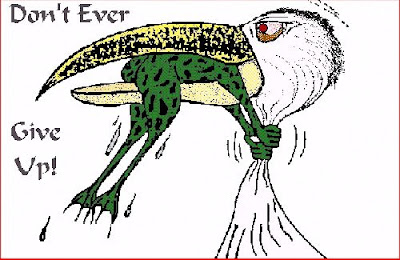Media Bias vs. Media Corruption
Publicly, we all know that media contituents are biased even though most of us will not admit it.
All reporters lean one way or another as it relates to the subjects and/or people they cover. Mainstream media leans to the left, while the alternative media, such as talk radio leans to the right. Whether it be in politics, music, film, or the fashion industry, the media has its favorites and often makes it known.
Most take painstaking measures to hide it of course, for appearances of objectivity. Seldom is their bias undetectable although some are better at hiding it than others. For example, reporters often reflect their preferences for certain politicians and society movements in articles or news pieces by writing favorable articles about them or “product placing” them in feel-good news pieces to which viewers would be most receptive. Conversely, the individuals that media likes the least are given adverse coverage, if any at all. That is media bias.
Unfortunately, today most of the news rooms have gone from media bias, to engaging in media corruption. While media bias is a breach of the fundamental journalistic standards that may lead to loss of the public trust, media corruption is the use of criminal devices to manipulate or defraud the public, and destroys our societal moral fabric.
Hmm, I didn’t think to look at the standards Journalists must follow to give an accurate picture. Very interesting.
Anyhow, journalism today is very competitve business and no longer do media journalists prioritize source accuracy and reliability in news reporting over ratings. How can they with proliferation of technological advances, and subsequent increased ambitions on the global socio-political/economic platform. News sources are now competing for advertising dollars, popularity and high ratings.
And with no one to “answer to,” media has ceased to be reliable tools for information, but become powerful tools for manipulation and fraud.
With full access and control of the news outlets that reach the masses, unthinkable as it once was, today journalists fabricate stories, create fraudulent documents to pass them off as evidentiary facts, and for personal gain even collude with elements of society to sabotage rivals, hurt their enemies, and control the masses. Right or wrong, they do whatever pleases them.
Who wouldn’t? Given the tenets of the press, they can make up “undisclosed sources”, fabricate stories of events that never happened, slander/ libel individuals, engage in every level of criminality, and in the name of journalism arrogantly invoke the protections of the profession, make millions, and become “red carpet stars.”
Makes one wonder, “How to manipulate the system?”, doesn’t it. Whoever controls the media controls what the people learn. But then it also makes one wonder, “How to stop the media corruption?”
Broadcasting Act 1989
Broadcasting Standards Authority
It can be done. lol





The simplest approach is to cease engaging with it.
Don’t read the papers, and stop watching the news.
This is what most Soviet citizens ended up doing (those that really wanted to know what was going on, anyhow). They tuned in to the BBC. So did Saddam’s subjects when the two gulf wars were raging. (Not that I’m recommending the BBC as an unbiased news source).
I don’t believe it’s possible to be unaffected in some unfavourable way by any media that communicates in one direction only. They are all variations on the megaphone.
I admit it’s not practical to disregard media completely, as it comes at us from every direction in so many different contexts. But whenever I hear a news story I always ask myself “is what this story saying anything like what I know of people personally?”. All too often the answer is no.
A good example of this was when Australian PM John Howard stated that boat-people threw their children into the open sea in an attempt to force the Australian Navy to rescue them (and so gain entry into Australia).
I’ve never met parents who would throw their children into mortal danger for an unrelated benefit (one might, but not a group en masse). Parents would only throw their children to the waves if the danger of remaining on board was worse.
(Sure enough, that was the truth of it).
Comment by Rob Case — Fri 8th June 2007 @ 1:09 pm